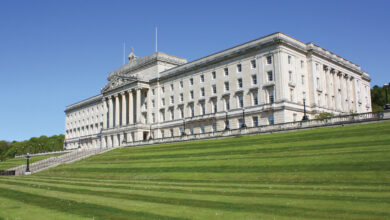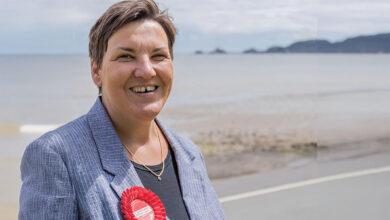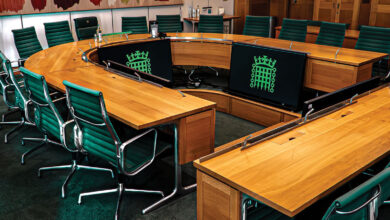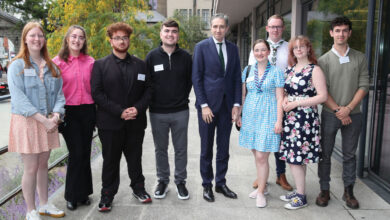Martina Devlin
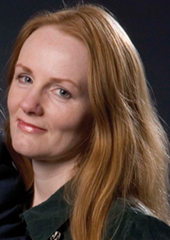 Omagh-born Martina Devlin began her journalism career on Fleet Street before moving to Dublin where she joined the Irish Independent. The award-winning author tells agendaNi about her Titanic connections and how Northern Ireland is viewed in the Republic.
Omagh-born Martina Devlin began her journalism career on Fleet Street before moving to Dublin where she joined the Irish Independent. The award-winning author tells agendaNi about her Titanic connections and how Northern Ireland is viewed in the Republic.
Please outline the career pathway that led to your current role as columnist in the Irish Independent.
I’ve taken a great many detours. In fact, as career paths go, mine can only be described as winding. Lurching from one job to the next sums it up. I studied law for no better reason than because I had the grades to get in, realised it didn’t suit me, switched to journalism, loved it at once – and I was away at the gallop. Until I screeched to a halt, mind you. But while still at the gallop stage, I found myself on Fleet Street working for the Press Association for seven years, a terrific all-round experience. I’m fond of London and return when I can. I never stopped pinching myself walking up Fleet Street to work, thinking about all the literary types who loitered about the area, from Dr Johnson to Charles Dickens.
Anyhow then I threw it all up and moved to Dublin to study at Trinity for a master’s in Anglo-Irish literature – the perfect excuse to sit round reading books all day. While there, I wrote my first short story, beginner’s luck kicked in and it won a Hennessy Literary Award. I went: “Mmm, maybe I’ll give this a try”, and started a novel. Sadly, I couldn’t stay at Trinity forever (though some fortunate people do). I needed to go back to earning a living so I became a reporter on the Irish Independent, meanwhile writing novels in my spare time. Seven years ago the newspaper offered me an op-ed column on Thursdays: a heaven-sent excuse to get opinions off my chest, and then I can forget all about the real world for the rest of the week and fiddle about with books and short stories.
How have your family links to the Titanic impacted on you and your writing?
They started me writing historical fiction. I had only tried my hand at contemporary fiction or non-fiction before that. I felt moved by the discovery that my grandmother’s uncle eloped on the Titanic and quite excited to have someone in my bloodline with such romantic urges, even if it was three generations back. I wanted to tell his story to reclaim something from the wreckage. But I decided to fictionalise it as ‘Ship of Dreams’ rather than attempt a biography, because that freed me to let the narrative take precedence. I couldn’t change what happened – I couldn’t move the iceberg out of the Titanic’s way – but I could invent characters and control their fate. Up to a point. If you were in steerage, you only had a one in four chance of surviving. Less if you were steerage and a man. The Irishmen were stoical, heroic and worked like Trojans to get their women into lifeboats. It’s important to remember that.
Your co-written novel ‘Banksters’ outlines the fall of the Irish banking system through profit and greed. In your opinion, has anything changed and is Ireland on its way to recovery from the fall of the Celtic Tiger?
Recovery is still some way off. The Republic is living under an IMF-EU bailout programme. The State is immersed in a long, slow period of readjustment which I believe will lead to recovery eventually, but in the meantime times are tough for ordinary citizens. The political system will be obliged to continue forcing spoonful upon spoonful of nasty medicine down throats. That means higher taxes, and more of them, lie ahead.
![martina-devlin2[2] martina-devlin2[2]](http://www.agendani.com/wp-content/uploads/martina-devlin22_thumb.png) What three economic or social issues are the most prevalent in Ireland at the moment and why?
What three economic or social issues are the most prevalent in Ireland at the moment and why?
Unemployment, unemployment and unemployment. It’s a cancer. It’s the greatest challenge for any government, and soul-destroying for the people in dole queues. It leads to emigration. It leads to people losing their homes. It leads to relationships breaking down. It leads to plummeting living standards. It leads to despair.
What is the current consensus on Northern Ireland within the Republic?
People in the Republic are just relieved the bombs have stopped – not as relieved as people in the North, of course – and prefer not to think about it anymore. There isn’t a widespread burning urge for reunification. These days, Greece matters more than the Garvaghy Road. That might seem insular, but a battle for survival is happening, and what goes on in other euro zone territories has more impact. The real difference between North and South right now isn’t orange or green, but that the Republic is living in a bail-out and the North isn’t.
What has being an author taught you about journalism?
It’s all about communication: you’re telling a story via a particular format and platform, using the tools i.e. words which you hope will get your message across. There are similarities between being a columnist and a novelist because you take a position and put your case. News reporting is different because the facts are all that matter. However columnists, like novelists, can allow opinion to colour their material. As long as work is clearly labelled ‘comment’ in a newspaper or ‘fiction’ in a book, I’d argue that’s fine.
How do you like to spend your spare time?
I’m a bookworm – real books not Kindle downloads. I especially like to dip into Samuel Pepys’ diaries because he makes me laugh. He was so wonderfully venal, self-absorbed and forever giving women the glad eye, while a brilliant social observer. Recently I’ve discovered Twitter and started tweeting @DevlinMartina. I’m hooked because it offers intimacy at a distance, which is probably a contradiction in terms but it works for me. And I go to zumba dance-exercise classes, where we work out to Carl Douglas’ ‘Kung Fu Fighting’. You’ve no idea how therapeutic kung fu kicks can be.

